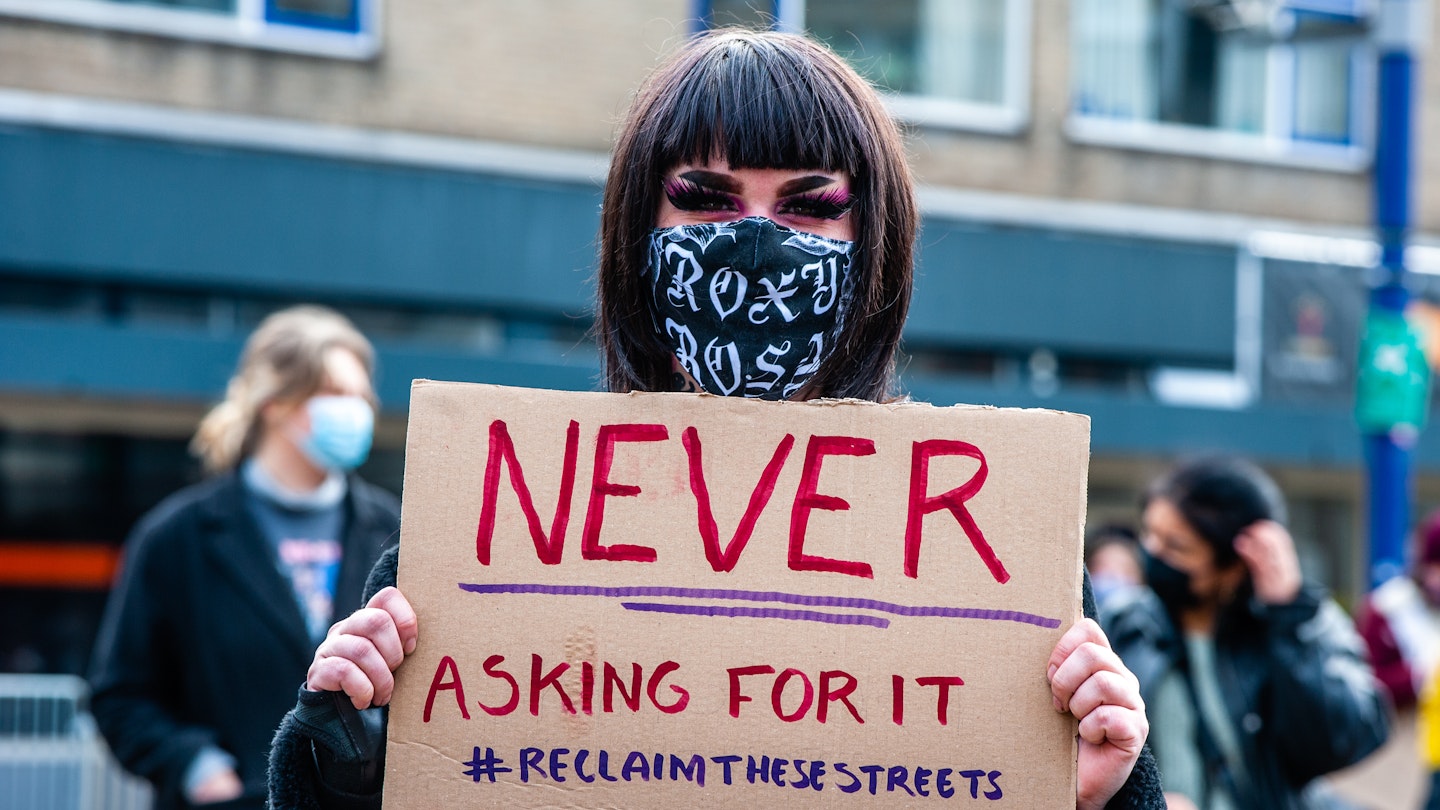Today, it was found that 65% of people who report rape or sexual assault to the police drop out of the investigation after making a complaint - a figure that has tripled in the last two years. London’s independent victims’ commissioner, Claire Waxman warned that victims, predominately women, are being belittled and deterred from pursuing justice.
The research, published by Waxman, also found that 64% of people who do drop out do so within one month of reporting to the police, a figure also up 18% in two years.
This news comes just weeks after it was reported that almost half of women in the UK have lost faith in the police according to a YouGov poll, commissioned by the End Violence Against Women (EVAW) coalition.
'These early withdrawal numbers should prompt us to consider how police are handling victim/survivor interactions, as the victim/survivor may have only really dealt with police officers during this time,' Waxman said of her report, adding that some victims were being told their phones would be scoured during investigations - a practice that was banned last year.
'They are painting such a bleak picture to the victims, they are deterring them, whether they meant to or not,' she said.
Waxman validated the now-common narrative that rape has been 'effectively decriminalised' in this country due to atrocious conviction rate of 1.6% - something the government apologised for earlier this year with ministers admitting they were 'deeply ashamed' of the figures. Of 52,210 rapes recorded by police in England and Wales in 2020, only 843 resulted in a charge or a summons.
Of the 1% of rape cases that reach trial, only 1.6% result in a conviction.
And when it comes to cases the simply reach trial, a 2019 previous report by Waxman found just 3% of rape cases in London did - that fell further to just 1% in 2021. That means of the 1% of rape cases that reach trial, only 1.6% result in a conviction.
She said that victims are having their character pulled apart during rape investigations with their sexual history, social services records and mental health records being thoroughly examined, while suspects were becoming emboldened.
‘Reporting to the police was the biggest mistake I have ever made,' one female victim quoted in the report said. 'They didn’t believe me, they belittled me, questioned my lifestyle and minimised my experiences.'
Often, the process of reporting a rape complaint can feel like an assault itself, resembling something closer to character assassination, rather than an investigation.
Waxman points out that another huge issue with prosecutions - or the lack thereof - is that police and prosecutors see any small inconsistency in a victim’s account as a reason to stop an investigation and instead, investigate the idea that victims were lying.
‘This is despite academic research showing trauma can lead to inconsistencies,’ she points out. Symptoms of post-traumatic stress, which research shows 75% of rape victims go through within one month of being attacked, has a profound impact on a survivor’s memory, and their ability to pinpoint specific details.
‘I have spoken to victims/survivors who have had police officers directly suggest that they probably did consent and now regretted it, hence their report of rape,' Waxman said. 'If the underlying assumption of the system is that rape victims/survivors are likely lying, then we are not giving the victim/survivor a fair chance at justice and are setting them up to fail.’
The research is yet further proof of the haunting culture of rape and sexual abuse in this country. More than 3.4 million women in England and Wales have been victims of rape, and even with reporting rates reaching an all-time high this year, conviction rates remain abysmally low.
'We understand that rape and serious sexual assault are incredibly distressing and impact victims deeply and we also fully recognise that there is much more we must do to drive the improvements to the criminal justice outcomes they deserve to see,' commander Melanie Dales, the Metropolitan police lead on public protection, said.
It should go without saying, but clearly it doesn't: women should be able to confidently report incidents of rape and sexual assault to the police. Until conviction rates improve and police learn how to support victims instead of belittling them, we never will.
If you have been victim to sexual abuse and want to talk to someone, you can visit the Rape Crisis website for support here****.
Read More:
The Government Apologies For The Decriminalisation Of Rape Isn’t Good Enough – We Need Action
Exclusive: This Powerful Film About Women Facing Street Harassment Is A Must-Watch
